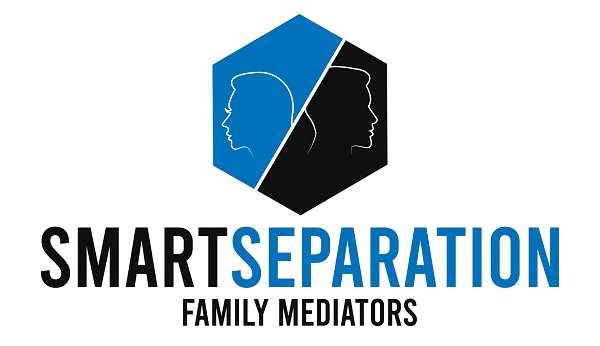Understanding Divorce under Ontario Family Law
Divorce in Ontario is governed by federal and provincial laws that outline how couples can legally end their marriage. Whether you’re initiating a divorce or responding to one, it’s essential to understand your legal rights and the processes available—including the role a Toronto family mediator can play in helping you avoid a lengthy court battle.
- Legal Separation vs. Divorce
A legal separation occurs when spouses live apart with the intent to end their relationship but remain legally married. Divorce, on the other hand, is the legal termination of the marriage and must be granted by an Ontario court. - Grounds for Divorce
Under Canada’s Divorce Act, there are three recognized grounds for divorce:
Living separate and apart for at least one year (most common)
• Physical or mental cruelty
• Adultery
Only one of these grounds needs to be proven, and separation is typically the most straightforward. - Role of the Ontario Family Court
The Ontario Family Court (a branch of the Superior Court of Justice) handles divorce applications, parenting arrangements, support obligations, and property division. While the court is the final authority for granting a divorce, many couples resolve issues outside of court—often with the help of a Toronto family mediator. - Required Documents and Timelines
A divorce application includes several documents, such as Form 8 (Application), Form 36 or 25A (Affidavit for Divorce or Final Order), and a copy of the marriage certificate. Processing time varies but can take several months, depending on whether the divorce is contested or uncontested. - Importance of Resolving Parenting, Support, and Property Issues
Before a divorce is finalized, the court requires that arrangements for children (if any), spousal support, and division of assets are addressed. These sensitive issues often benefit from the guidance of a neutral professional. This is where a Toronto family mediator comes in—to help both parties communicate effectively and reach fair, practical agreements without going to court.
What Is Family Mediation?
Family mediation is a cooperative and confidential way for separating or divorcing couples in Toronto to resolve disputes without going to court.
- Voluntary, Confidential, and Non-Adversarial
Mediation is entirely voluntary. Both parties must agree to participate, and everything discussed during the sessions remains confidential. This environment promotes honest dialogue without the stress and pressure of a courtroom. - Involves a Neutral Third Party (Toronto Family Mediator)
A Toronto family mediator acts as an impartial facilitator—not a judge or lawyer. They do not take sides or impose decisions. - Helps Couples Reach Mutually Acceptable Solutions
Rather than battling in court, couples work together in mediation to find common ground. Whether it’s deciding who stays in the family home or creating a parenting schedule, the focus is on compromise and fairness. - Covers Parenting, Finances, Support, and Property Division
Mediation can address all aspects of separation, including:
Parenting plans and decision-making responsibility
• Child and spousal support
• Division of assets and debts
• Any other family-related concerns that need resolution - Not Legally Binding Unless Converted into a Formal Agreement
While the outcome of mediation isn’t automatically enforceable in court, it can be formalized. Many couples choose to have their mediated agreement turned into a legally binding separation agreement with the help of their lawyers or through court approval.
When Does Mediation Typically Happen in a Divorce?
Family mediation can take place at various points throughout the separation and divorce process in Ontario. Whether you’re just starting to separate or are already in the middle of legal proceedings, working with a Toronto family mediator can help reduce conflict and encourage practical solutions at any stage.
- Before Filing for Divorce (During Separation)
Many couples turn to mediation during their initial separation. This early stage is ideal for resolving key issues like parenting time, child support, and property division before officially filing for divorce. Reaching agreement early on can simplify the legal process and reduce overall stress. - After Filing but Before Trial
Even after divorce papers are filed, couples can still engage in mediation. In fact, Ontario family courts encourage out-of-court settlements wherever possible. A family mediator can help resolve outstanding disputes before the case escalates to a trial, potentially saving both time and legal fees. - As Part of Court-Directed Alternative Dispute Resolution (ADR)
In some cases, the court may require couples to attempt mediation as part of the Alternative Dispute Resolution (ADR) This is particularly common in Toronto, where family courts often encourage parties to resolve matters through mediation before setting a trial date. - Post-Divorce for Modifications (e.g., Parenting Plans)
Life circumstances change. Former spouses may return to mediation after divorce to revise parenting plans, adjust support arrangements, or settle new disagreements. A Toronto family mediator provides a neutral environment to address these changes without reigniting courtroom conflict.
Mediation vs. Litigation: How They Differ in Toronto Divorce Cases
When couples in Toronto go through a divorce, they typically choose between two main paths: mediation or litigation. While both aim to resolve family law matters like parenting, support, and property division, they differ significantly in terms of process, cost, and emotional toll.
| Aspect | Mediation | Litigation |
| Cost | Lower overall cost; often flat-rate options | Higher legal fees and court-related expenses |
| Privacy | Confidential and private discussions | Public court records and proceedings |
| Control over Outcome | Couples maintain control and make joint decisions | Judge makes binding decisions |
| Timeframe | Typically faster; weeks to a few months | Lengthy process; may take months or years |
| Emotional Impact | Collaborative, lower stress, family-focused | Adversarial, often increases conflict and tension |
As an experienced family and divorce mediator in Toronto, I often write blogs to provide insights, tips, and resources on family mediation and divorce in Ontario. Follow my blog to stay informed and empowered during challenging times.



